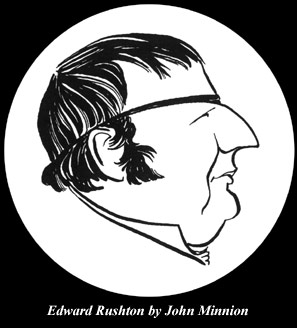
| HOME |
| NERVE |
| REVIEWS |
| ARCHIVE |
| EVENTS |
| LINKS |
| ABOUT US |
| CONTRIBUTORS |
| BACK ISSUES |
| CONTACT US |
Back to index of Nerve 12 - Summer 2008
 With Friends
like these….
With Friends
like these….
There is much gnashing of teeth just now at the Liverpool Museum, where the 1700-strong body of Friends of the Museum has been effectively disbanded and thrown out of its office at the Albert Dock.
The Museum and its ‘Friends’ have been at odds for several months in a crude debate of ‘elitism’ versus ‘dumbing-down’. Where the Friends have truly put their foot in it, though, is in their refusal to support the International Slavery Museum. They regard it as ‘not a balanced exhibition’. They’d like more about William Roscoe and the other good guys of Liverpool.
We’ve been round the exhibition and could suggest a few improvements:
- There is not enough hard information about the local culprits. Liverpool's merchants developed the slave trade, fought tooth and nail to preserve it and whinged for compensation when the game was finally up. Their speeches and petitions to Parliament are cringeworthy but should be on view. So should their efforts to support the slave trade even after abolition. Banastre Tarleton's election campaign of 1807 – that’s abolition year - was "The Church and the Slave Trade for ever" and he sent two black boys through the streets with a placard reading 'African trade restored'.
- The exhibition's stirring title is "Remember not that we were freed but that we fought", yet there are few quoted examples of the subjects of the empire striking back. We have the August 1823 slave uprising on the Demerara estate of John (father of William) Gladstone. But how about the Liverpool slave ship Scipio, blown up by insurgents off the West African coast in December 1749? There were plenty more such incidents.
- The 'triangular trade’ took manufactured goods from England to West Africa to exchange for slaves. Who bought these goods? Were they happy enough to buy them with other people's bodies?
- There were abolitionists more outspoken than Roscoe and his Athenaeum mates. William Roscoe after all got into Parliament not by campaigning against slavery but by not mentioning the issue at all. So some space, please, for the blind poet Edward Rushton, who in 1796 took George Washington to task for owning slaves while claiming to uphold liberty."Shame! Shame! That man should be deemed the property of man; or that the name of Washington should be found among the list of such proprietors."
Something tells us this isn't quite the 'balance' the Friends are after. Still, when the exhibition expands - with or without their help – we can hope that some of these gaps will be filled.
Find out more about Edward Rushton at: billhunterweb.org.uk/books/forgottenhero